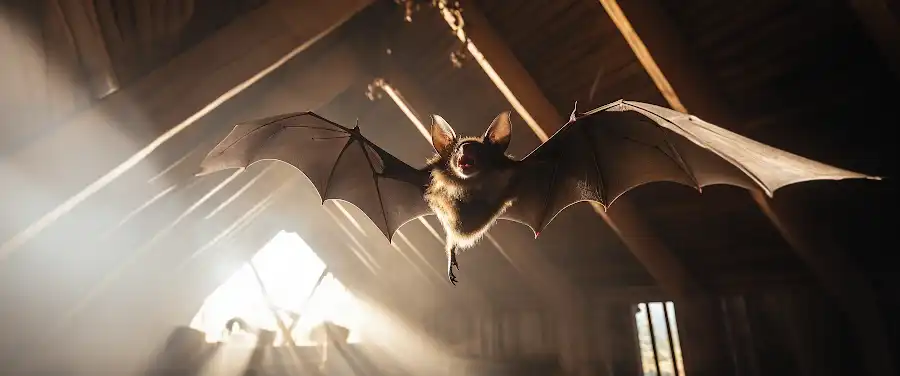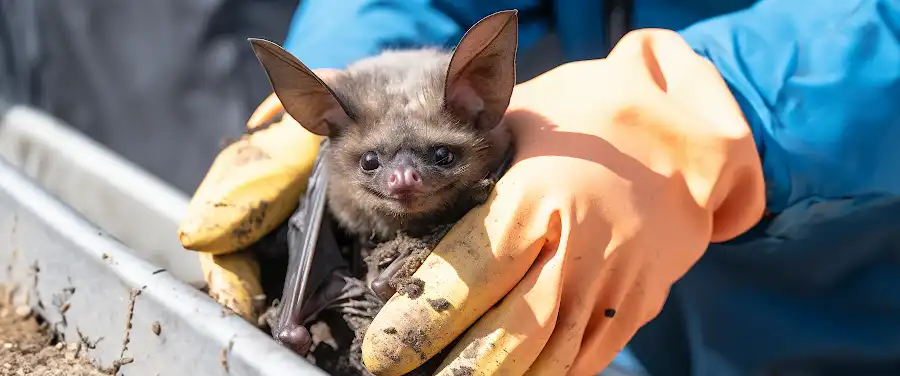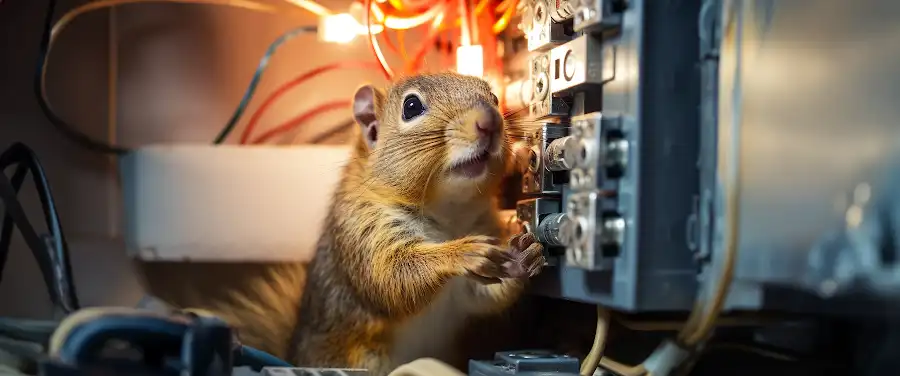
Did you know that a small, fluffy creature could potentially cause havoc in your electrical wiring system? It might sound surprising but our seemingly innocuous and permanently busy backyard pals, squirrels, may be the culprits behind some electrical damage around your abode. Their cute, nut-loving exterior hides a persistent gnawer, capable of chewing through a lot more than just acorns.
What is it about these little creatures that make them such a big problem? Well, let’s dive a little into the fascinating world of squirrel behavior. These chittering animals can be quite the characters, out on a perpetual quest to seek out and store food, practicing their exquisite balancing skills on slender branches, and inadvertently being rather skilled acrobats too. But what could possibly link this with electrical damage? Let’s put our Sherlock Holmes hat on and investigate the case of the mischievous squirrels.
We know squirrels are inherent chewers, it helps them to maintain the size of their teeth and is just a part of their everyday life. From tree bark to seeds, from your cherished plants to… yes, you got it right! Electrical wires. As bizarre as this may sound, squirrels have been known to gnaw on everything, wires included, turning a quiet space into a field of potential electrical hazards. But before we delve deeper into why our friendly critters would ever do such a thing, let’s understand: why do squirrels chew on wires?
The pieces of the puzzle are slowly starting to fit together, so stick with us as we uncover what might be happening right under your roof. Prepare to view these fuzzy-tailed creatures in a new light as we explore further into an intriguing introduction to squirrel damage.
What Kind of Electrical Damage Can Squirrels Cause?
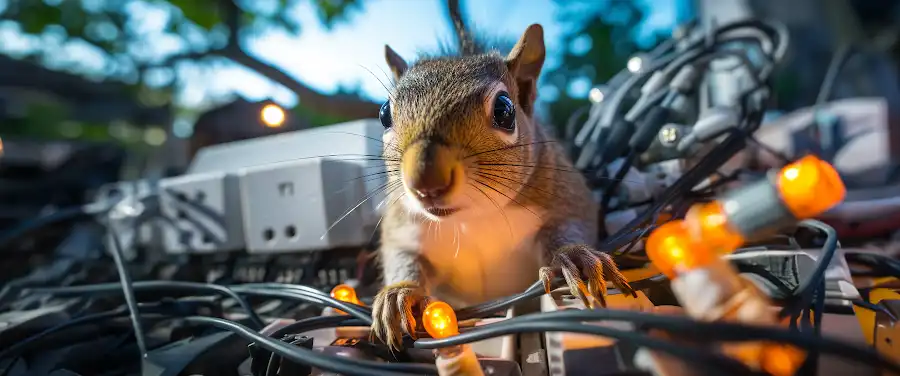
You may look at a squirrel and think: “What harm could this cute, fluffy creature possibly inflict on my house?” The answer may surprise you. Squirrels can cause serious damage to your home’s electrical wiring, posing significant fire risks.
Squirrels are notorious for gnawing on stuff. And when this gnawing habit extends to electrical wires, it could lead to various types of electrical damage in your home or office. This is because squirrels’ teeth never stop growing, so they have to gnaw to keep them in check.
Some of the many ways squirrels can cause electrical damage include:
- Short-circuits: When squirrels gnaw on wires, it could lead to exposed wires touching each other, causing a short circuit.
- Power Outages: Gnawed wires can disrupt the flow of electricity, leading to power outages in parts of or your entire home.
- Fires: Perhaps the most concerning is that squirrels gnawing wires can cause electrical fires. When insulation around wires is gnawed away, the wires can overheat and catch fire.
One real-life example of squirrel-inflicted electrical damage occurred in the town of Spennymoor in the UK, where a squirrel gnawed through a wire, causing a power outage for 900 homes, according to BBC News.
Now let’s take a look at some statistics on squirrel-related damages. According to the National Fire Protection Association, nearly 20% of all undetermined house fires in the US are assumed to be caused by rodents such as squirrels chewing on wires.
The table below further breaks down the areas in the home where you’re likely to find squirrel-induced electrical damage:
| Area in the House | Likelihood of Squirrel-Related Electrical Damage |
|---|---|
| Attic | High |
| Garage | Moderate |
| Basement | Moderate to High |
| Walls and Between Floors | High |
As you can see, squirrel-related electrical damages are a real threat to our homes and offices. It’s essential to recognize the signs of squirrel activity to prevent serious harm.
Now that we’ve talked extensively about the various kinds of electrical damage a squirrel can cause, the question naturally arises: how can you tell if squirrels have caused electrical damage in your house?. Stay tuned, as we’ll dive into this in the next section, providing you with the knowledge you need to protect your home from these cute but potentially dangerous creatures.
How Can You Tell if Squirrels Have Caused Electrical Damage?
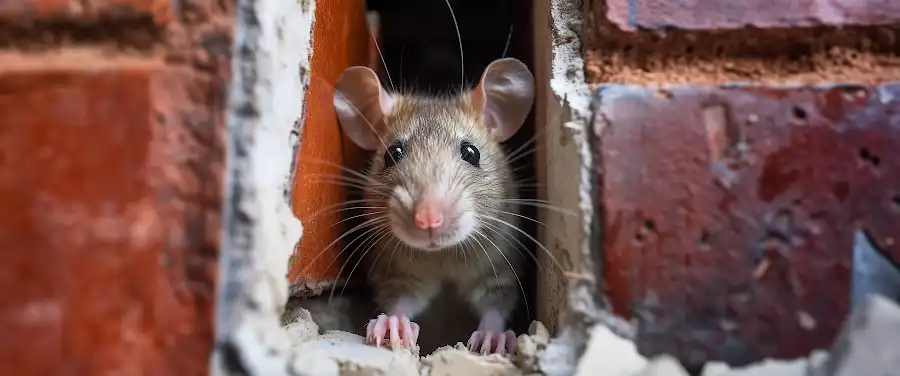
Surprisingly, squirrels and electrical damage in homes go hand in hand more often than you might think. These agile creatures’ incisors never stop growing, which leads them to constantly gnaw on anything, including your electrical wiring. But how can you tell if the culprit behind your electrical chaos is indeed a squirrel? Let’s dive into what you should look out for.
What are the Common Signs of Squirrel-Inflicted Electrical Damage?
First and foremost, the most visual sign is the sighting of squirrel itself. Now, you might wonder why only squirrels? Can’t it be any other rodent causing such a ruckus? Well, the answer is simple. Each creature leaves behind its own distinctive signs. Here are the common signs to determine if you are dealing with squirrel-inflicted electrical damage rather than that caused by other rodents:
- Chewed electrical wires: Squirrels are relentless when it comes to chewing, and electrical wires seem to be one of their favorites. If you notice chewed or frayed wires, especially around the attic or roof where squirrels typically nest, it’s a telltale sign.
- Nests in isolated areas: Unlike rats or mice that prefer to nest close to ground level, squirrels often build their nests in isolated places like attics or wall cavities.
- Distinctive droppings: Each rodent species leaves behind unique droppings. Squirrels usually have oblong, rounded droppings, typically larger than that of mice or rats.
The National Pest Management Association (NPMA) estimates that squirrels, rats, and mice infest over 21 million homes each winter in the United States, causing massive electrical and structural damage.
Do Squirrels Leave Any Unique Marks or Traces?
Yes, squirrels do leave behind unique marks when they cause damage, particularly unique squirrel traces on your electrical wiring. They have long incisors that create deep, distinctive gnaw marks. Also, squirrels tend to cut neat and clean holes around the edges to gain entry, unlike other rodents that leave ragged edges.
Additionally, you may also notice piles of shell fragments from nuts and acorns (their favorite foods) in attic spaces or under bird feeders, which is a clear sign of their presence.
Identifying squirrel-inflicted damage is crucial in devising an effective strategy to barricade against future intrusions. Irrespective of the rodent involved, any signs of electrical wiring damage should be addressed promptly to avert potential hazards.
In the next section, we will delve deeper into how electrical damage from squirrels can impact your home. Stay tuned.
How Can Electrical Damage from Squirrels Impact Your Home?

The adorable flurry-tailed squirrels that play in your backyard may look harmless, but these creatures can silently cause substantial damage to your property, specifically, to your home’s electrical systems. So, it’s crucial to consider the question: are squirrels causing electrical damage in your home?
Squirrels have a propensity for chewing, a trait that can lead to substantial home mishaps, especially when it comes to your wiring. Frighteningly, such damage can lead to severe consequences such as power outages, electrical fires, and even pose safety risks to your family.
Potential Risks from Electrical Damage by Squirrels
Expense Due to Squirrel-inflicted Electrical Damage
The cost of electrical repairs caused by squirrel damage can skyrocket, putting a strain on your finances. For instance, rewiring your home could cost anywhere between $500 to $2000, depending on the extent of the damage.
Let’s look at a detailed breakdown in this table:
| Type of Damage | Average Cost |
|---|---|
| Rewiring | $1500 – $2500+ |
| Repairing Insulation | $2500 – $5000+ |
| Replacing Damaged Appliances | $100 – $2000+ |
| Professional Pest Control | $1500 – $5000+ |
Note: These are estimated costs and actual values can vary.
Impact on Home Insurance
When it comes to insurance, most standard home insurance policies unfortunately do not cover damage caused by rodents, including squirrels. Therefore, homeowners are often left to bear the burden of repairing any damage caused by these small animals.
It is clear that the impacts of squirrel damage go beyond the mere annoyance of having these creatures around. Serious potential risks like electrical fires, various expenses, home insurance impacts, and raised safety concerns all show the substantial trouble they can silently bring to homeowners. As you can conclude, understanding how to mitigate these issues becomes paramount to not only preserving your home but also ensuring your family’s safety.
Coming up next, we will explore effective solutions on “How Can You Prevent Squirrels from Causing Electrical Damage?” You will learn about different ways to keep these furry invaders at bay, ensuring your home stays safe from such damages.
How Can You Prevent Squirrels from Causing Electrical Damage?
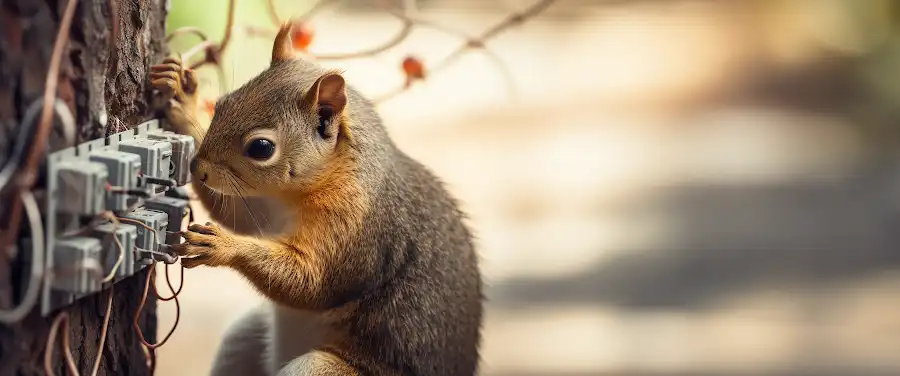
Squirrels are cute, furry creatures that we often enjoy watching in our gardens. However, they can also be a nuisance, particularly when they start nesting in our houses and causing electrical damage. These crafty rodents are known for gnawing on everything, including electrical wires, which can lead to serious electrical faults and fire hazards. So how can you prevent squirrels from causing electrical damage in your home? Let’s explore some solutions.
Measures to Discourage Squirrels from Nesting in Your Home
There are several steps you can take to discourage squirrels from nesting in your home. One straightforward measure involves making your house unappealing for these critters by sealing all potential entry points, like small holes and vents, with metal mesh or wire. Another tactic is to trim tree and shrub branches that are too close to the house, creating a bridge for squirrels to cross over.
Homeowners should also consider the type of bird food they use. Squirrels love bird seed and may be attracted to your yard if you have a feeder. Consider investing in squirrel-proof bird feeders or using bitter-tasting bird food that squirrels dislike.
These are some expert tips on keeping squirrels away from the electrical set-ups in homes. According to the National Wildlife Control Operators Association, using a combination of these measures can significantly reduce the likelihood of squirrel infestations. Therefore, assessing the effectiveness of these preventive measures shows satisfaction with end results.
Are There Any Products or Tools that Can Deter Squirrels?
The market is flooded with specific products and tools designed to deter squirrels. Electronic devices emitting ultrasonic sound waves – harmful to squirrels but not humans – are increasingly popular. Other products aim at repelling these creatures, such as sprays containing predator scents or substances that create an unpleasant taste for the squirrel.
However, the effectiveness of these products or tools varies. While some homeowners report success, others see no noticeable difference in squirrel activity. The best course of action is probably to use a combination of remedies.
In recent studies, for example, users found that using squirrel deterrent products like spicy sprays in combination with physical barriers like wire mesh had the best results. This reinforces the importance of considering multiple factors and trying different tactics to address the problem.
Beating the bushy-tailed invaders requires patience, persistence, and creativity. Remember, prevention is better than dealing with costly repairs, so invest time in finding the best solution for your particular situation.
With a well-rounded knowledge of squirrel-proofing techniques, you can protect your home from potential damage and live peacefully alongside these charming yet potentially destructive creatures.
Conclusion
By now you must realize, the seemingly innocent activity of squirrels in your backyard can turn out to be quite a risk to your home’s electrical health. The once fuzzy rodents, busily scampering around, are now unexpected culprits of electrical damage.
Let’s quickly recap what we’ve learned about squirrels and electrical damage. Squirrels have a tendency towards chewing electrical wires which could lead to short circuits, blackouts, and even electrical fires in your home. Such squirrel-inflicted damages might seem minor at the onset, but they can lead to major issues if not promptly addressed.
Most importantly, it’s crucial that we always prioritize safety. Be it your safety while dealing with these critters, or the safety of your electrical systems. This means using preventive measures such as getting professional pest control help, or using squirrel deterrents. These actions minimize the chance of squirrels causing havoc in your electrical systems.
Furthermore, it’s necessary to regularly check your home for signs of squirrel infestations or ng possible electrical damages. If you do discover anything suspicious, immediately seek professional help. A professional will have expertise in safely navigating around electrical circuits while addressing potential squirrel-related damages.
So let’s act now! Don’t wait for a blackout or a home fire to remind you of the urgency of this issue. Ensure the durability of your electrical system and the safety of your home. After all, a stitch in time might save nine, but a well-maintained home could save a lifetime of memories!
Remember! These tiny rodents may seem harmless, but their potential for creating dangerous situations is immense. It’s wise to equip yourself with necessary information and act responsibly. Now that you’re aware of the risks and the necessary preventive actions, it’s time to protect your home from unwelcome squirrel visitations!


